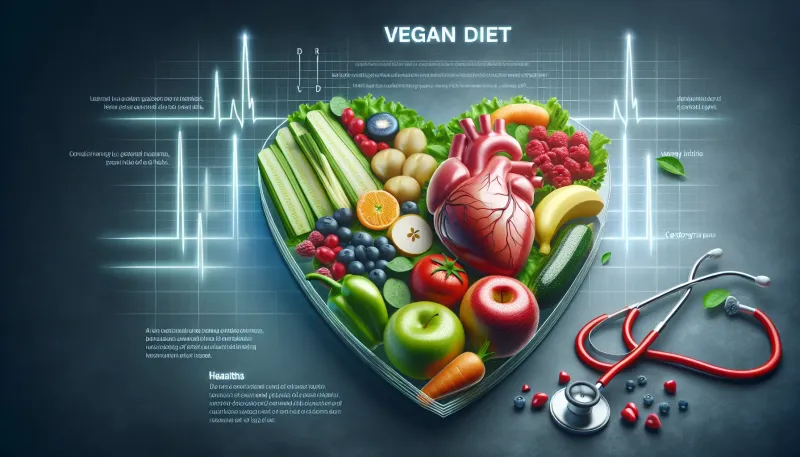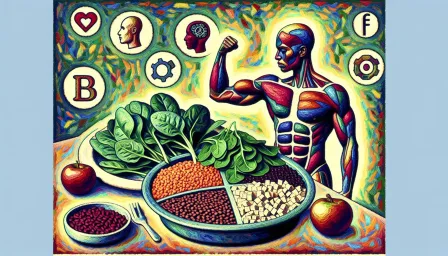The Impact of a Vegan Diet on Heart Health: What You Need to Know

Discover the comprehensive impact a vegan diet has on heart health. Learn about the benefits, challenges, and potential risks, backed by well-researched information.
The correlation between diet and heart health has been a topic of research for many years. Among the variety of diet regimens, the vegan diet has garnered significant attention for its potential benefits on cardiovascular health. This article explores the key aspects of how a vegan diet influences heart health, providing well-researched and factually accurate insights.
What is a Vegan Diet?
A vegan diet is a plant-based eating plan that excludes all animal products, including meat, dairy, eggs, and honey. It emphasizes the consumption of fruits, vegetables, legumes, nuts, seeds, and whole grains. The diet has gained popularity not only for ethical and environmental reasons but also for its potential health benefits.
How a Vegan Diet Benefits Heart Health
1. Lower Cholesterol Levels
One of the primary ways a vegan diet can benefit heart health is by reducing cholesterol levels. Plant-based foods are naturally cholesterol-free and are often high in dietary fiber, which has been shown to lower LDL (bad) cholesterol levels. Lower cholesterol levels are linked to a reduced risk of atherosclerosis and coronary artery disease.
2. Blood Pressure Management
High blood pressure is a critical risk factor for heart disease. Studies have indicated that those following a vegan diet often have lower blood pressure compared to their omnivorous counterparts. This effect is attributed to the high intake of potassium-rich foods like fruits and vegetables, alongside lower sodium intakes from processed foods.
3. Increased Antioxidant Consumption
Vegan diets are abundant in antioxidants, which help combat oxidative stress and inflammation—two factors significantly implicated in heart disease. Found in berries, leafy greens, nuts, and seeds, antioxidants such as vitamin C, vitamin E, and polyphenols support arterial health and overall cardiovascular function.
4. Weight Management
Maintaining a healthy weight is crucial for heart health, and a vegan diet can play a significant role in weight management. Plant-based diets tend to be lower in calories and higher in dietary fiber, which promotes satiety and reduces overall calorie intake, thereby aiding in weight loss or maintenance.
5. Improved Blood Sugar Control
Many studies have shown that a vegan diet can improve blood sugar control and lower the risk of developing type 2 diabetes—a significant risk factor for heart disease. The high fiber content helps regulate blood sugar levels, while plant-based proteins have a lower glycemic impact compared to animal proteins.
Challenges and Considerations
1. Nutrient Deficiencies
While a well-planned vegan diet can provide all necessary nutrients, there is a risk of deficiencies in vital nutrients such as vitamin B12, iron, calcium, and omega-3 fatty acids—essential for maintaining overall health. It is important to consider fortified foods or supplements to ensure adequate intake of these nutrients.
2. Quality of Plant-Based Foods
Not all vegan foods are created equal. Highly processed vegan foods can be high in sugar, salt, and unhealthy fats, which can negate the cardiovascular benefits of a plant-based diet. Emphasizing whole, minimally processed foods is essential for gaining the full heart health benefits.
3. Individual Response
Dietary impacts on heart health can vary between individuals. Factors such as genetics, pre-existing health conditions, and lifestyle choices can influence how a vegan diet affects one's heart health. Consulting with a healthcare provider can help tailor the diet to meet individual health needs.
Practical Tips for Adopting a Heart-Healthy Vegan Diet
1. Prioritize Whole Foods
Focus on consuming whole, unprocessed foods as the foundation of your vegan diet. This includes fresh fruits, vegetables, legumes, nuts, seeds, and whole grains.
2. Incorporate Healthy Fats
Include sources of healthy fats such as avocados, nuts, seeds, and olive oil. These fats are essential for heart health and can help in the absorption of fat-soluble vitamins.
3. Ensure Adequate Protein Intake
While plant-based proteins are plentiful, it is important to include a variety of protein sources such as legumes, tofu, tempeh, and quinoa to meet daily protein requirements.
4. Stay Informed About Nutrient Needs
Be aware of potential nutrient deficiencies and incorporate fortified foods or supplements as necessary. Regular blood tests can help monitor nutrient levels and prevent deficiencies.
Conclusion
In conclusion, a vegan diet can have a profound positive impact on heart health by lowering cholesterol levels, managing blood pressure, increasing antioxidant intake, aiding in weight management, and improving blood sugar control. However, it is crucial to plan the diet carefully to avoid nutrient deficiencies and focus on consuming whole, minimally processed foods for optimal health benefits. By making informed dietary choices, individuals can harness the heart health benefits of a vegan diet while addressing any potential challenges.



























